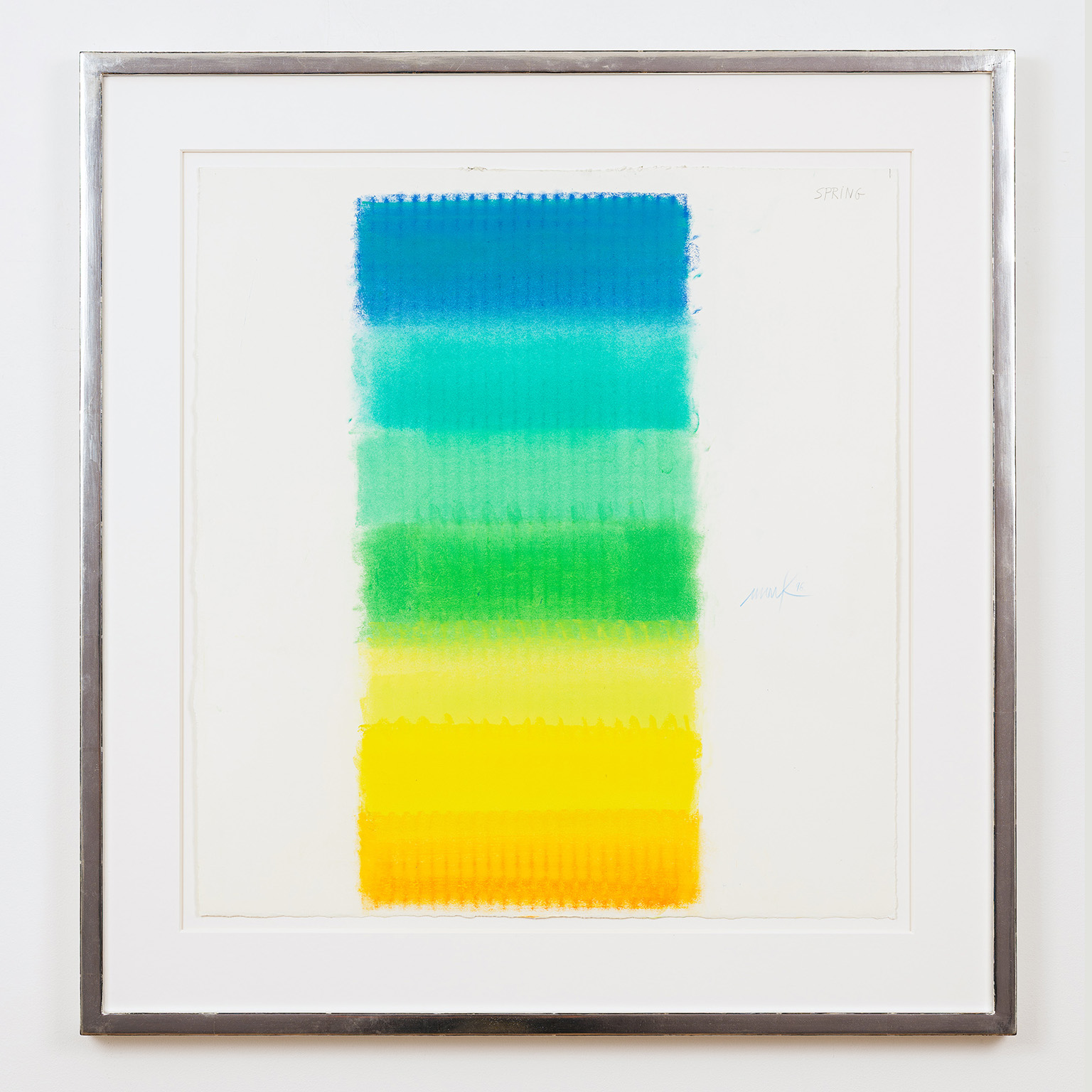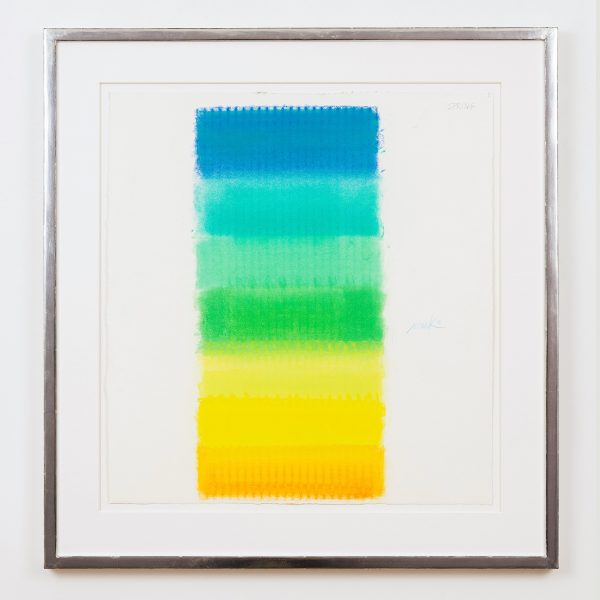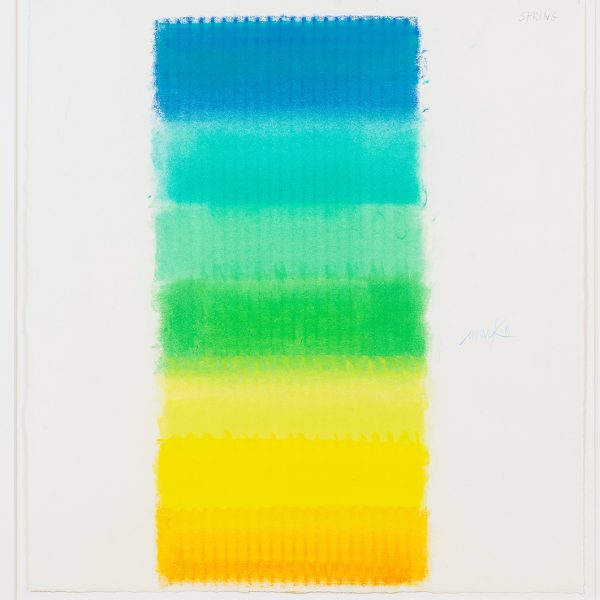
Heinz Mack
(German, b.1931) Heinz Mack is a seminal figure of postwar abstraction and a co-founder of the ZERO group, whose radical experiments with light, movement, and immateriality helped redefine the trajectory of contemporary art in Europe. Born in Lollar, Germany, Mack studied at the Kunstakademie Düsseldorf and the University of Cologne before establishing, together with Otto…
Heinz Mack
(German, b.1931)
Heinz Mack is a seminal figure of postwar abstraction and a co-founder of the ZERO group, whose radical experiments with light, movement, and immateriality helped redefine the trajectory of contemporary art in Europe. Born in Lollar, Germany, Mack studied at the Kunstakademie Düsseldorf and the University of Cologne before establishing, together with Otto Piene in 1957, the ZERO movement. In the aftermath of war, Mack and his peers sought a new beginning in art—one that turned away from subjective gesture toward clarity, purity, and a renewed engagement with natural phenomena.
Mack’s practice encompasses painting, sculpture, drawing, and large-scale environments. His “Lichtreliefs” and kinetic sculptures of the 1960s employ reflective materials such as aluminum, glass, and stainless steel to create dazzling optical effects that shift with light and movement. This exploration extended into outdoor projects in desert landscapes, where his works engaged directly with sunlight, wind, and sand to transform perception of space.
Throughout his career, Mack has combined a rigorous formal sensibility with a poetic interest in the ephemeral qualities of light. Alongside Otto Piene and Günther Uecker, he established ZERO as one of the most influential international avant-garde movements of the 20th century.
Today, Mack’s work is represented in major museum collections worldwide.

